Faculty Job: Myths & Realities – an interview with Tom Bennett
About you
Describe your journey from student to newly appointed faculty
I did my undergraduate degree at the University of Leeds, then moved to the University of York to do my PhD with Ottoline Leyser. I really enjoyed my PhD, but decided I didn’t want to work on auxin any more (famous last words), so I moved to the Netherlands to work with Ben Scheres on root cap patterning at the University of Utrecht. I became really interested in the evolution of roots while I was there, so I then moved to the University of Cambridge to work with Jill Harrison looking at development in Physcomitrella patens. I didn’t really enjoy working with moss that much, and by that time Ottoline had moved to Cambridge, and so I then went to work with her again at the very exciting new Sainsbury Laboratory. Although in some ways that felt like a backward step, it was actually very beneficial, because I knew the project so well, and was able to make real progress with it. I started applying for jobs after a couple of years there, and eventually got a position in Leeds – bringing myself back full circle!
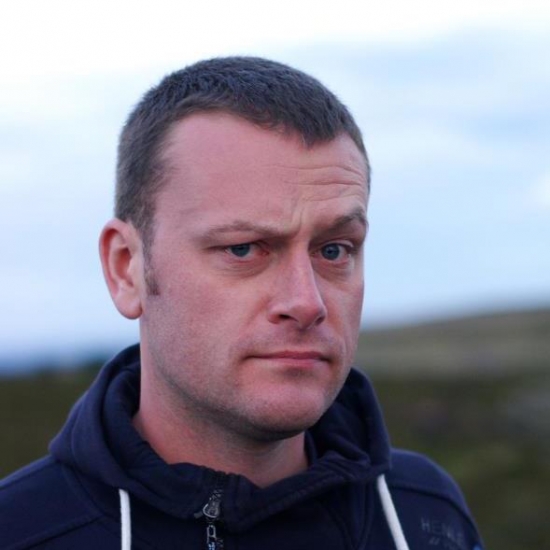
What inspired you most to pursue your current career?
Probably being awarded an undergraduate studentship by the Gatsby Plant Science Network. When I started my degree, I wasn’t sure about my career, and I certainly wasn’t thinking about plants. But then this opportunity came up in my second year, and I’d enjoyed the plant teaching in that semester, so I decided to apply for it. And the more I read about plants while writing the application, the more interested I became in plant development! I think from then on I was pretty much sold on that as a career.
What is the major focus of you research team?
At the broadest level, my lab works on the long-distance coordination of plant growth and development across the plant body by hormonal signalling. I’m particularly interested in understaning how plants use these signalling systems to integrate environmental information in order to make ‘pro-active’ decisions about their development. There are three main projects in the lab at the moment. Firstly, we are trying to understand basis of specificity in the strigolactone signalling pathway, given its close evolutionary relationship with the KAI2 signalling pathway. Secondly, we want to understand how hormonal signalling determines ‘reproductive architecture’ in flowering plants – that is to say, how do plants decide how many inflorescences, flowers, fruits and seeds to make, and how to arrange them in space and time. Thirdly, we are trying to understand how plants detect the physical components (e.g. soil volume, soil depth) of the rhizosphere through their root systems, and how they convey this information to the shoot system to modulate shoot growth.
Which conferences do you regularly attend?
It really varies, depending on the year and where the conferences are. I don’t have fixed conferences that I attend as such. I would happily go to any plant development or plant hormone meeting. I’m going to the IPGSA conference in Paris this year, but somehow that will be my first IPGSA!
About your job hunt
How long did it take you from the beginning of searching faculty jobs to get one?
I published a series of papers in 2014, after which I felt like I would definitely be able to get a faculty job, so that was when I started looking. I was offered a position in February 2016, so it was probably 18 months in total that I was searching. But there were big gaps in that time where there were no jobs, followed by sudden rushes of jobs, depending on the stage in the academic year.
During your job hunt, what did you learn about yourself or about the process of finding an academic job?
I think the key thing I learned is that every faculty generally has a specific kind of person in mind when they are hiring. So you can be an exceptional candidate, but still not get offered a position, because you don’t fit the profile that the faculty is looking for. Several faculties openly told me that they would have happily employed me, but that they were looking for e.g. a plant pathologist, and that is who the offered the job to. You just have to accept that, and keep trying! It is fair enough, because as a scientist, you won’t necessarily feel that every faculty is for you either – it works in both directions.
Based on your experiences and the feedback you got during the job search, what do you think are key skills and accomplishments that a successful candidate must demonstrate?
I’d be lying if I said it wasn’t mostly about tangible achievements – papers published, grants received, and so on. You can be a brilliant thinker, a great colleague, a wonderful teacher, but unless you can demonstrate clear achievements, you are unlikely to be offered positions (though of course, there are exceptions!).
I don’t think it should necessarily be that way, because past achievements are often no guidance as to future achievements. Surely it is better to focus on potential instead of past achievements? However, I can understand why faculties use directly measurable achievements to assess candidates, especially when they are measured by those same achievements.
Which published paper was the most influential for your career or getting the faculty job?
In my case, I don’t think there was a single paper that was especially influential. I think it was the number and variety of papers that I have published that got me the job!
Advice for job applicants
Beyond your research and publications, how did you prepare for the academic job hunt during your postdoc?
Faculty jobs involve much, much more than doing research – there’s teaching, admin, management, bureaucracy and so on. Faculties are much more likely to employ you if you can show that you already have experience of those non-research elements.. So one of the key things I did to try and prepare was (where possible) to take on positions of responsibility, teaching, supervision of students, etc. A little bit of extra experience goes a long way in terms of presenting yourself as a more ‘rounded’ candidate. It also demonstrates you are likely to be a good colleague – faculties generally don’t want people who are only willing to do their own research, and not contribute more broadly.
How did you prepare for the actual job hunt? How did you identify potential opportunities, prepare your application materials, and prepare for interviews?
Finding opportunities is pretty easy nowadays – in the UK, all academic positions are listed on a single website (www.jobs.ac.uk), so I just trawled through newly added positions every week or so. The key thing with applications is to make sure they are tailored to the institute you are applying to. Don’t just send the same CV and covering letter to everyone! Make sure you take the time to understand what the institute is looking for, and make sure you highlight in your application why you are an exceptional candidate for this opportunity. Don’t rely on just being a generally great candidate – sell yourself according to what the institute wants to hear.
In terms of preparing for interviews, I found that the only really useful preparation was being interviewed. My first couple weren’t that great, but once I had been through a few interviews, I started to be much less nervous, and to understand how the interviews worked and what questions would be asked. Eventually I could go into interviews already knowing what my answer would be to almost any question I might be asked. You could probably ‘short-cut’ this process by asking people who have recently got a position what questions they were asked in interviews (I certainly still have a list somewhere!). But even so, there’s no preparing for the psychological intensity of ‘live’ interview without going through it!
About you as a faculty member
What were the initial challenges to starting your own lab?
There are many major challenges, and they join up to form a sort of circular ‘mega-challenge’, at least in the UK (I believe that the system is somewhat different in the US) You need money to run a research group. But you can’t get money without interesting preliminary data. And you can’t get interesting preliminary data without people. And you can’t have people without money… I think most new staff find themselves somewhere in that loop to start with. So my advice to aspiring group leaders would be to make sure you develop good preliminary data for grant applications while you are still applying for jobs, and to make sure you negotiate a good start-up package when you get a faculty job, so that you can at least get started with your research program.
Another major challenge is that you start with such a low profile. Prospective students and post-docs don’t know you have a research group, which makes recruiting good people harder, even if you do have money. Similarly, research agencies, journal editors, potential industrial partners, potential academic partners – sometimes even your own colleagues – will have no idea who you are, whether you are any good, and whether you can be trusted. That can make developing new ideas, publications or grants that little bit harder. There’s no single answer to this problem, except to put a lot of effort into getting your name about and developing your reputation as a scientist. It will happen, but it’s slow!
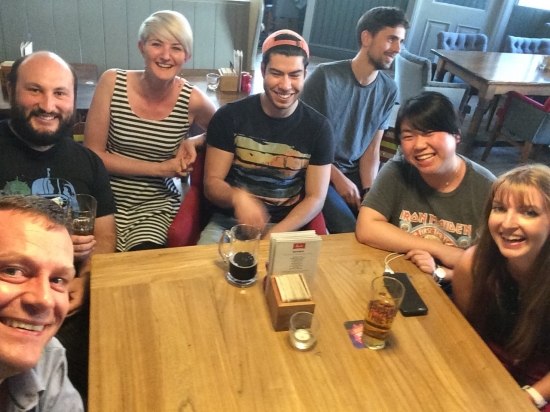
What qualities do you look for when recruiting for your lab?
I started off looking for “people like me” – plant developmental geneticists with good experience of imaging, who would essentially be able to replace me in the lab! But – by accident rather than design – I ended up employing a diverse bunch of people with very different skill-sets and experiences. And I’ve found that this actually works really well, because it broadens the range of perspectives, approaches and skill within the lab, and opens up new opportunities. I can teach them how to be developmental geneticists, and they can teach me all sorts of new techniques, so ultimately everyone benefits.
On a personality level, I look for people I can talk to easily, and who are interested in listening and learning, and who will fit into my research group as whole. Research groups are a human enterprise, and I believe that they fundamentally succeed or fail on the strength of their human relationships, and not on the basis of people’s intellect or technical skills. Collectively, a team of 5 people can achieve much more than 5 individuals, and so I really look for people who are willing to buy into the idea of conducting research as a team.
Research groups are a human enterprise, and I believe that they fundamentally succeed or fail on the strength of their human relationships, and not on the basis of people’s intellect or technical skills.
How do you manage “work-life balance” as a faculty?
Ha, not well! I’d give myself 4/10, ‘must improve’. My career is very important to me, but I would say that it has probably taken up too much of my time since I started my research group, to the detriment of my personal life. I think this is probably a very common problem for new members of staff, because you get ‘over-excited’ by all the new opportunities, and by wanting to develop your research group. I think one of my problems is that I don’t relax very easily if there are still things on my ‘to-do’ list at the end of the day, so paradoxically, I end up doing work in order to relax. I have at least realized I was working too much, and I’ve recently taken some steps to try and restore the balance to my life, including doing more exercise, setting aside specific time for ‘me’, and being more disciplined about when I work outside normal work hours.
If prospective students and postdocs want to reach you, where can they contact you and read about your work?
If they people want to contact me, I’d strongly encourage them to get in touch by e-mail. If they want to find out more about what we do, the lab website is a good place to start, and I actively tweet about what we do, so checking out either my twitter feed, or the lab’s twitter feed would also work!
Email: [email protected]
Personal Twitter: @ThisSunOf York
Lab Twitter: @tombennettlab
Lab website: www.tombennettlab.org



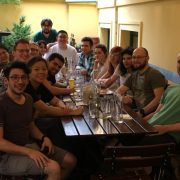

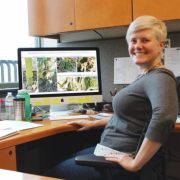

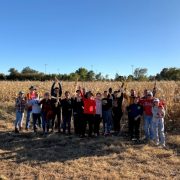
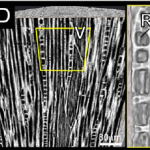

Leave a Reply
Want to join the discussion?Feel free to contribute!